Amegilla aeruginosaAmegilla aeruginosa Male
Photographs by Shane Dighton ◦
Amegilla (Notomegilla) aeruginosa are currently documented across the top half of Australia, in Western Australia, Northern Territory and Queensland (as far south as Roma, near Brisbane), although the Australian Biological Resources Study / Australian Faunal Directory4 does describes the distribution going into northern parts of New South Wales.7
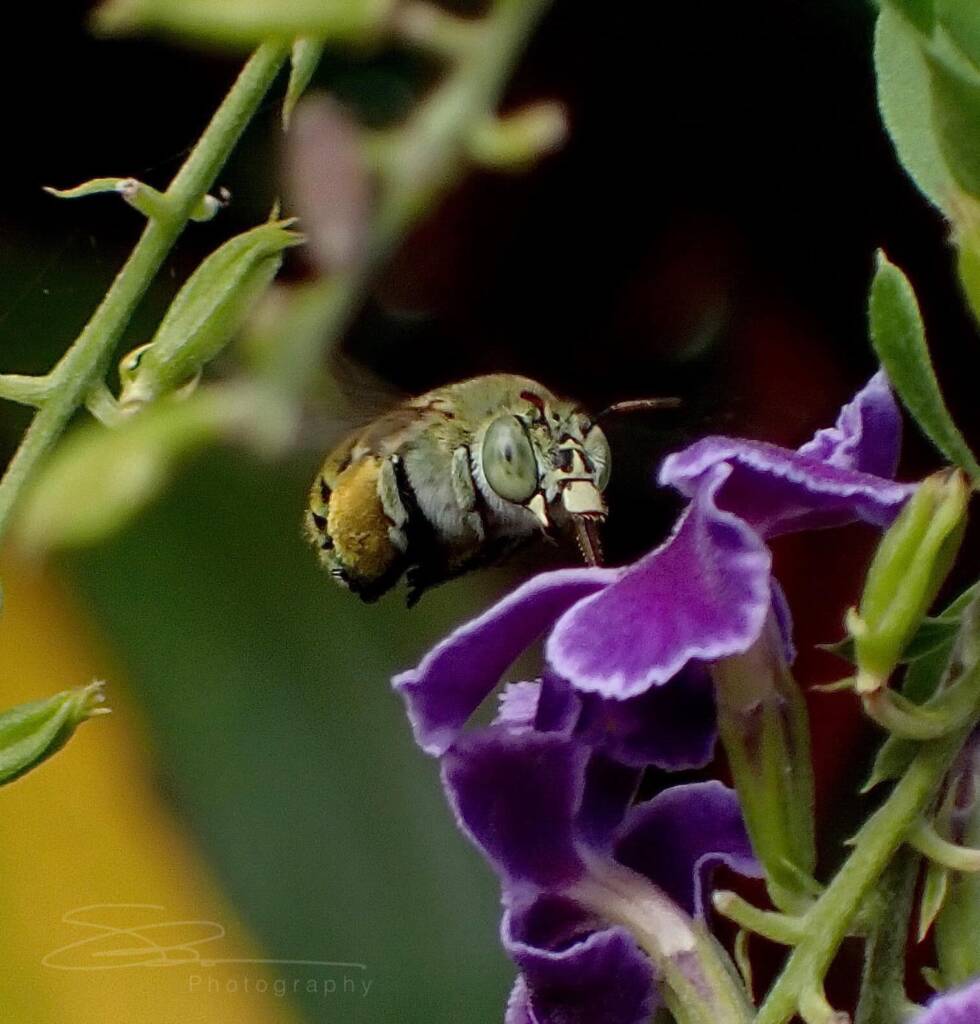
This bee belongs to the subgenus Notomegilla, that includes just two species, Amegilla aeruginosa and Amegilla chlorocyanea. Whilst they are commonly known as blue-banded bees, they are very different in that Amegilla aeruginosa are covered in short, iridescent green to bronze hair.
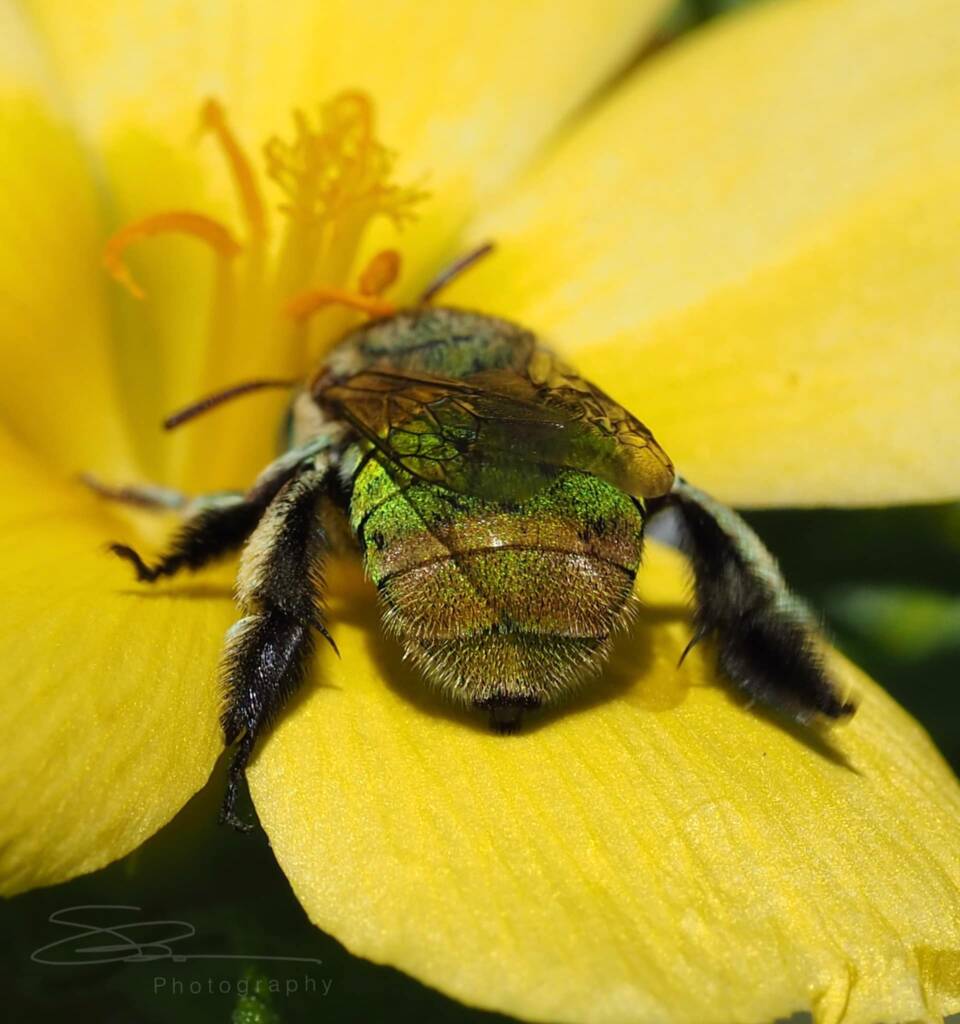
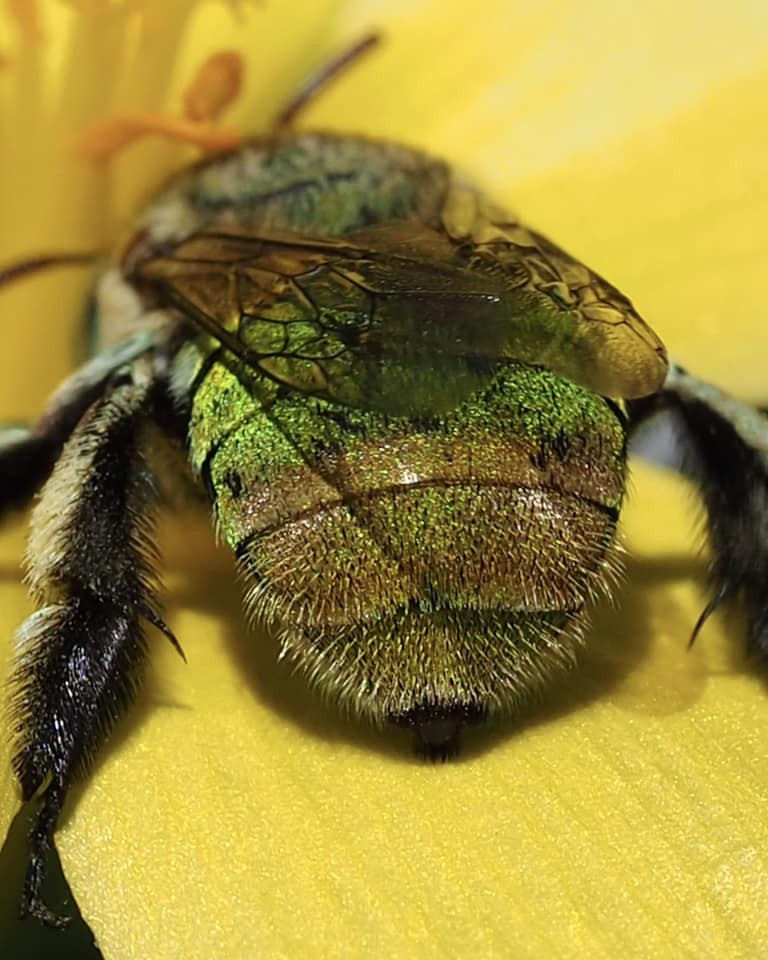
They have been known with the common name of the Green and Golden Bee, although Amegilla aeruginosa is more commonly used. The following male settling down to roost in the late afternoon.
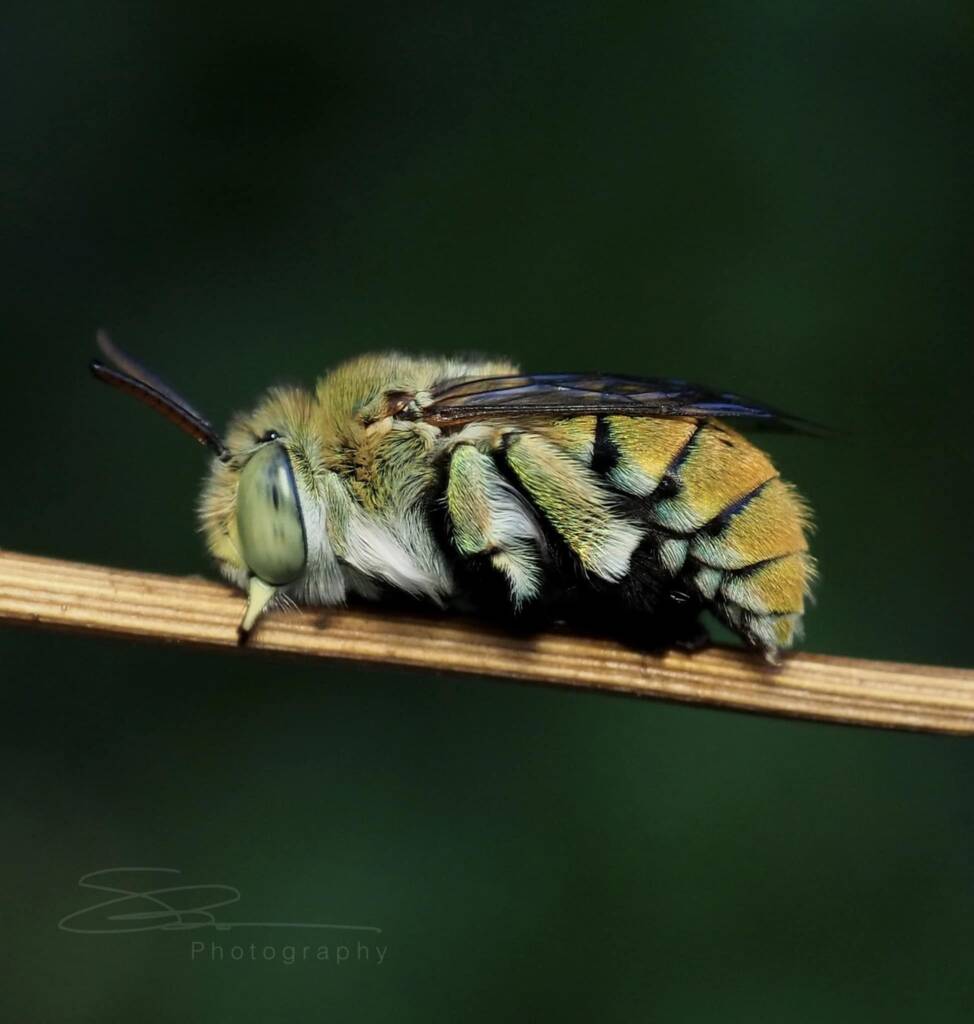
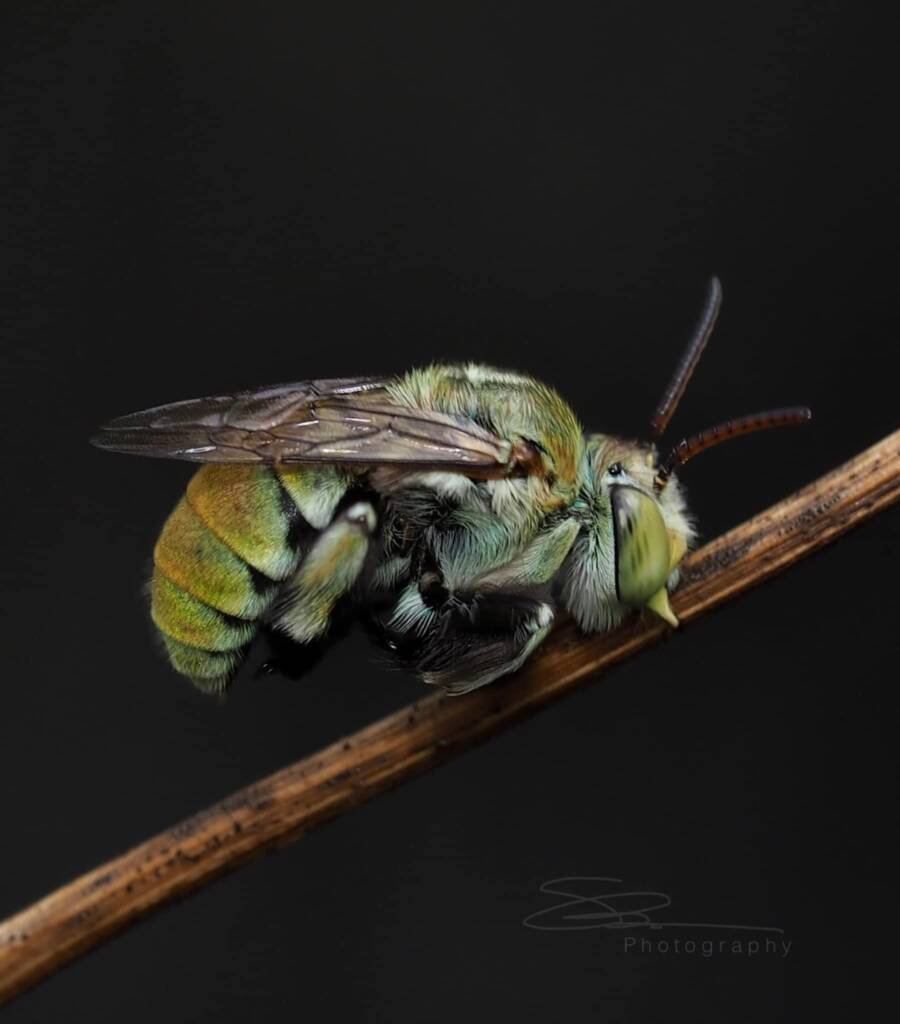
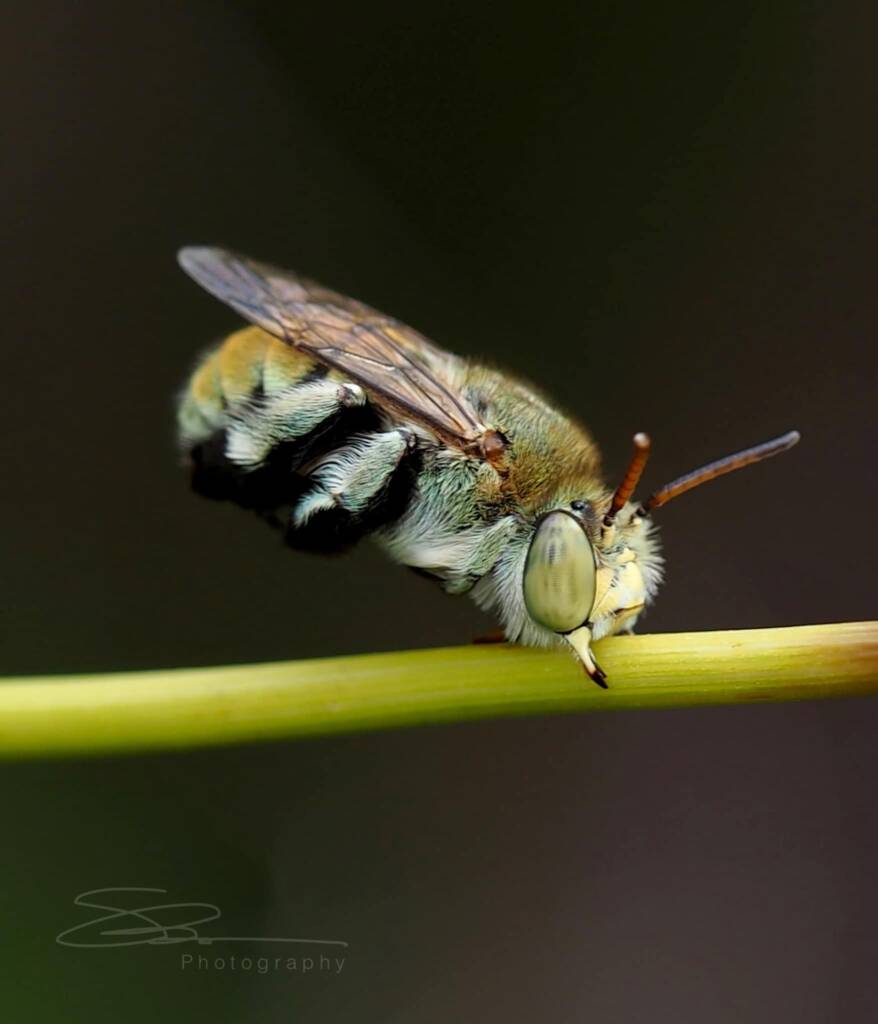
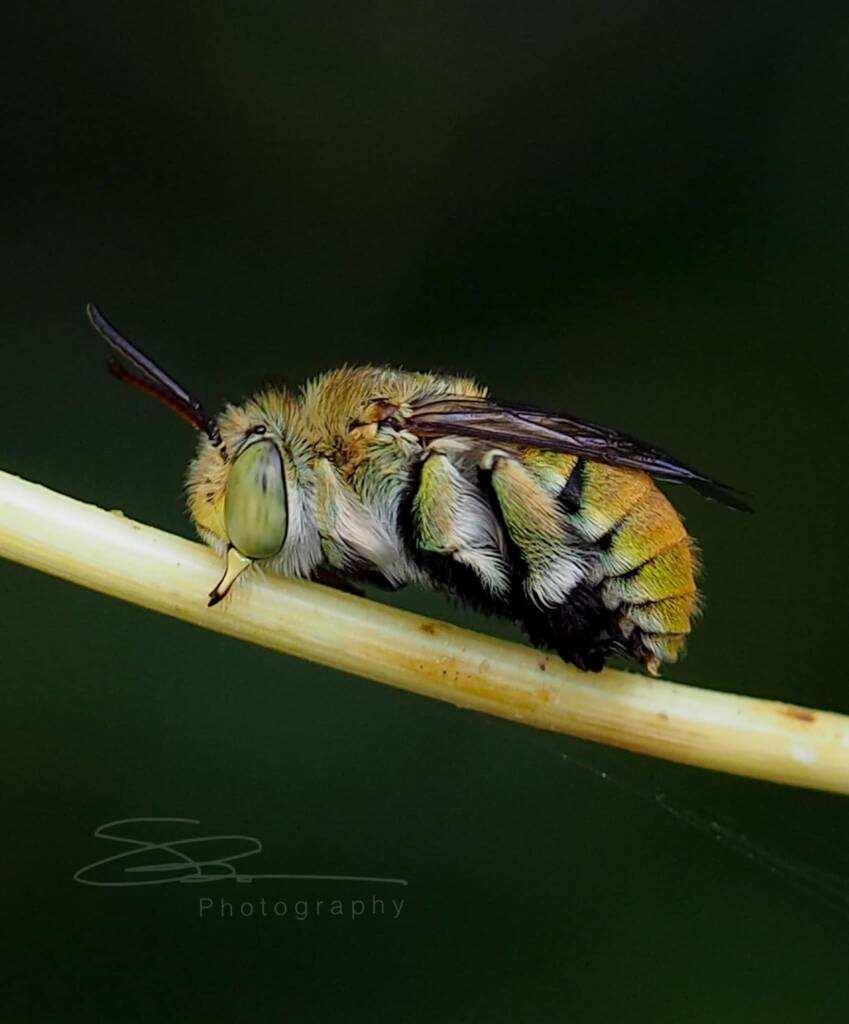
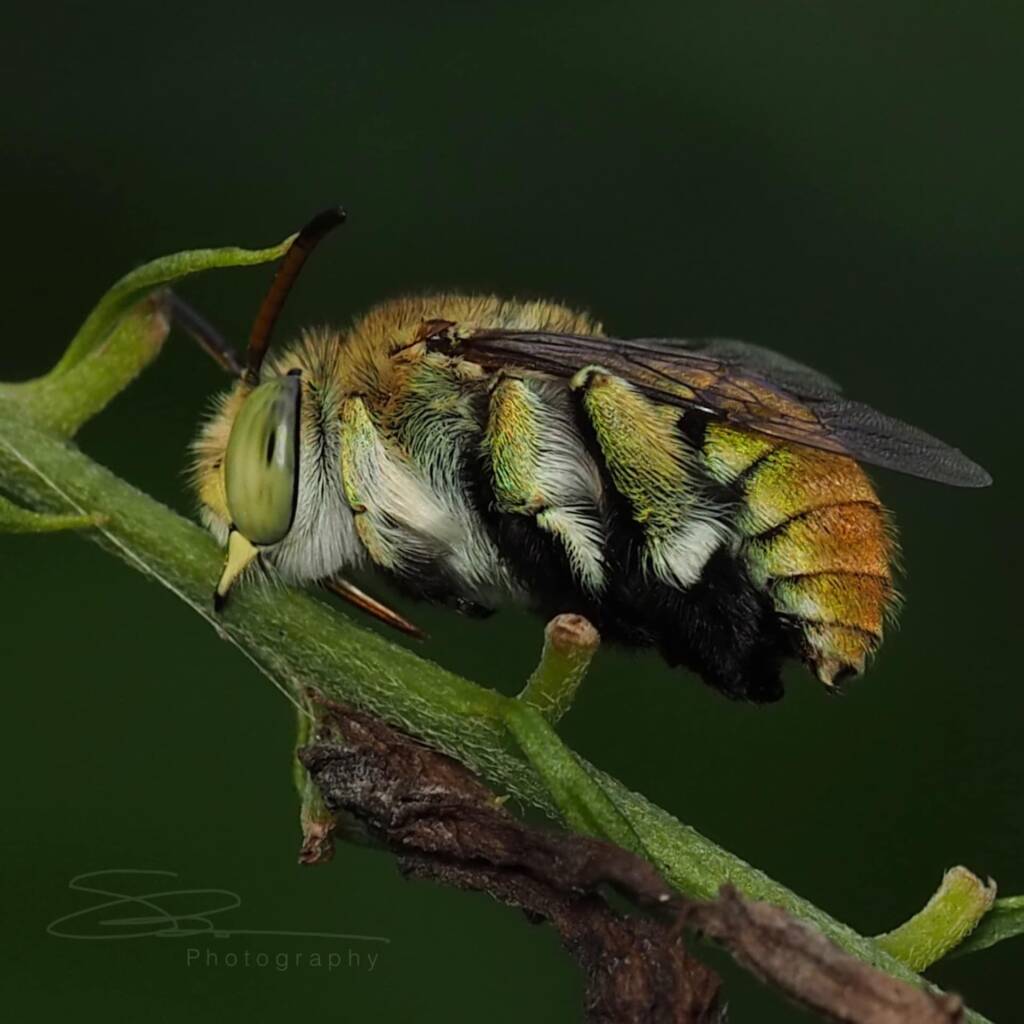
- Scientific classification
- Kingdom: Animalia
- Phylum: Arthropoda
- Subphylum: Hexapoda
- Class: Insecta
- Informal: Pterygotes
- Order: Hymenoptera
- Superfamily: Apoidea
- Informal: Apiformes
- Family: Apidae
- Subfamily: Apinae
- Tribe: Anthophorini
- Genus: Amegilla
- Subgenus: infrageneric Notomegilla
- Species: Amegilla aeruginosa
Footnote & References
- Photographs Amegilla (Notomegilla) aeruginosa © Shane Dighton
- Bee Aware of Your Native Bees (Australia), Facebook Group, https://www.facebook.com/groups/beeawareofyournativebees/
- Ken Walker (2017) Amegilla (Notomegilla) aeruginosa, Updated on Jan 28, 2017, Available online: PaDIL – http://www.padil.gov.au, https://www.padil.gov.au/pollinators/pest/138566, (Accessed 20 August 2020).
- Species Amegilla (Notomegilla) aeruginosa (Smith, 1854), Australian Biological Resources Study, Australian Faunal Directory, Australian Government, https://biodiversity.org.au/afd/taxa/Amegilla_(Notomegilla)_aeruginosa
- Anthophora aeruginosa Smith, F. 1854. Catalogue of Hymenopterous Insects in the Collection of the British Museum. Part II. Apidae. London : British Museum pp. 199-465. [Date published 31/12/1854] [336].
- A Guide to Native Bees of Australia, by Terry Houston, Publisher CSIRO Publishing, ISBN: 9781486304073, https://www.publish.csiro.au/book/7388/
- Amegilla (Notomegilla) aeruginosa (Smith, 1854), Atlas of Living Australia, https://bie.ala.org.au/species/https://biodiversity.org.au/afd/taxa/d6525416-7538-4f9d-8b2d-0ab36a13b94d
- Amegilla aeruginosa, iNaturalistAU, https://inaturalist.ala.org.au/taxa/703563-Amegilla-aeruginosa
- The genus Amegilla (Hymenoptera, Apidae, Anthophorini) in Australia: A revision of the subgenera Notomegilla and Zonamegilla. Leys, Remko & Batley, Michael & Hogendoorn, Katja. (2017). ZooKeys. 653. 79-140. 10.3897/zookeys.653.11177, https://www.researchgate.net/publication/313492868_The_genus_Amegilla_Hymenoptera_Apidae_Anthophorini_in_Australia_A_revision_of_the_subgenera_Notomegilla_and_Zonamegilla
Amegilla aeruginosaAmegilla aeruginosa Male
Amegilla BeeApical tergites of females Amegilla Body Colour Amegilla adelaidae Amegilla aeruginosa Amegilla asserta Amegilla chlorocyanea Amegilla walkeri Teddy Bear Bees (Asaropoda)
BeesBees Anatomy Bee Behaviour Blogging Bees… Bees – image index Amegilla Bee Apis mellifera Austroplebeia australis Austrothurgus Braunsapis sp Ceylalictus perditellus Colletidae Euryglossinae Exoneura Homalictus Hyleoides bivulnerata Lasioglossum Lasioglossum (Chilalictus) Lipotriches Megachile Meroglossa Stenotritidae Tetragonula Thyreus Xylocopa
